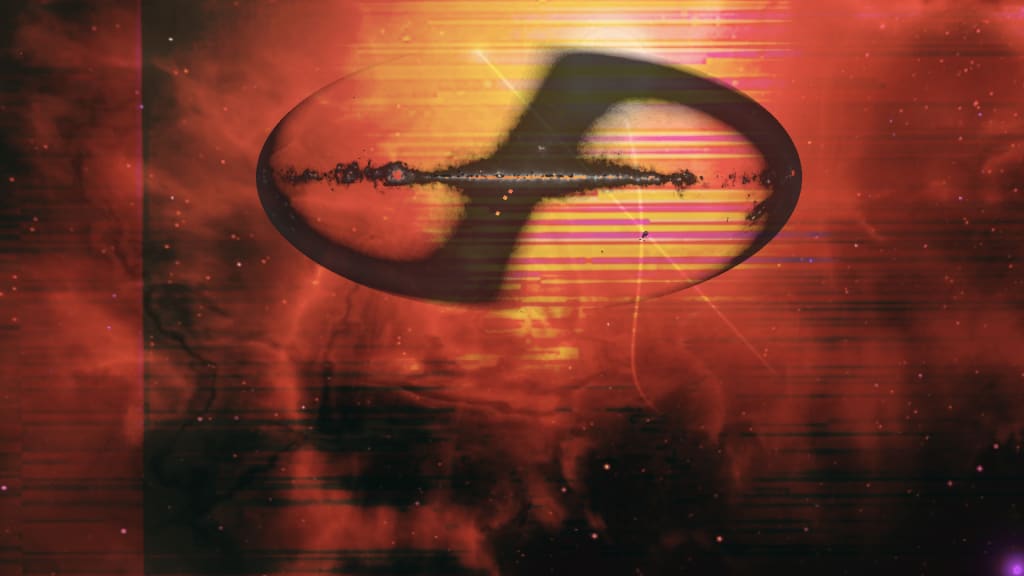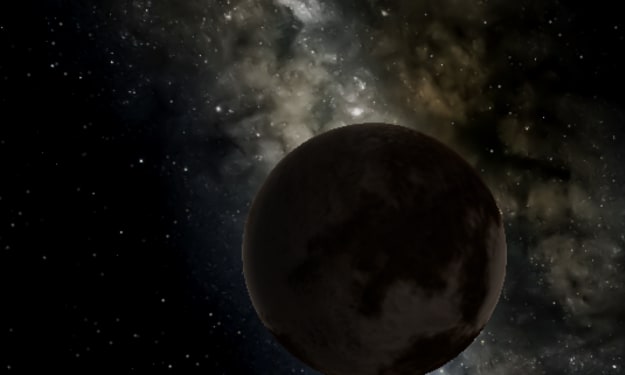How to ask Nature her secrets!
A guide to scientific thinking.

How do you ask Nature her secrets?
The true relationship between science and philosophy shapes what kinds of questions will lead to answers; and more questions.
This was explored in The Human Universe book adaptation of a BBC programme. Dr. Brian Cox, a researcher, well known particle physicist, and professor at University of Manchester and Dr. Andrew Cohen, the head of the BBC Science Unit and executive producer of the BBC Human Universe Series surmised that philosophy should be shaped by scientific endeavor. “Reputations count for naught in the face of observation.”(Cox and Cohen, 2014). To me, that meant you can sit and think as much as you want but if you don’t pay attention to nature your curiosity will turn to cockiness. Look around you. Stay curious about what is in front of you not just in your head!
“The remarkable thing about science is that it has ended up addressing some of the great philosophical questions about the origin and fate of the universe and the meaning of existence without actually setting out to do so, and this is no accident. You won’t discover anything meaningful about the world by sitting on a pillar for decades and contemplating the cosmos, although you may become a saint. No, a truly deep and profound understanding of the world has emerged more often than not from the consideration of much less lofty and profound questions, and there are two reasons for this. Firstly, simple questions can be answered systematically by applying the scientific method as outlined by Richard Feynmann, whereas complex and badly posed questions such as “Why are we here?” cannot. But more importantly, and rather profoundly, it turns out that the answers to simple questions can overturn centuries of philosophical and theological pontificating quite by accident. Reputations count for naught in the face of observation.”
CITATION: Cox, B. and Cohen, A., 2014. Human universe. 1st ed. William Collins, p.40.
The ancient relationship between human survival and curiosity is responsible for science, not any one culture.
The point of science is that if done right, it will be done right by others. Romans did not invent aqueducts, they invented the word for it and simply had their own version. Other civilizations have had architecture built for water supply long before Romans. Do not attribute technological advancements seen in many forms to one culture. Give credit for innovative differences and attribute the advancement of science to humanity and our instinct to learn.
Do not attribute technological advancements seen in many forms to one culture" is my way of preventing infatuation with any one culture over others, but it does not mean you should not give credit where credit is due, prejudice, especially racial biases/preferences are still very much an issue. Ask yourself these questions when challenging your view on scientific history:
1. How many other cultures wiped out during that period, not studied well enough, or too ancient, found the same pattern in nature?
2. How do you know that the tech invented was invented by who it's currently attributed to? Compare all known-Documentation, Carbon Dating, Anthropological/Historical Analyses and then give proper credit.
In Cosmology A Degree In A Book by Sten Odenwald, Sten offers insight on how our brains are hardwired for cosmology and given that because “These are such basic observations that, given our ancestors had much of the same intellectual capacity as we do today, it is unimaginable that they didn't know about them or the underlying astronomical world, no matter what stories they contrived to explain them.” (Odenwald, 2019)
Below that paragraph Sten explains his reasoning for this argument by breaking down the parts of our brains and their functions that are necessary to understand the observations and create models based on those concepts.
His section cosmology and brain evolution concisely makes connections between how the Temporoparietal Junction (TPJ), Posterior Cingulate, and Posterior Superior Parietal Lobule work in tandem to give humanity our sense of self awareness. That self awareness is what allows us to come up with a model of our surroundings. He states that because the TPJ, for the most part, helps us separate our body from other creatures and objects, the Posterior Cingulate says we have a place in our surroundings, and the Posterior Superior Parietal Lobule acknowledges a boundary between the individual and those surroundings, that our natural curiosity and penchant for scientific advancement is a result of our evolutionary process.
So it’s clear that we needed to study science, particularly astronomy for survival. But humanity always strives to understand Nature to thrive and better the human condition. So, astronomy has always been relevant and is nothing new as is seen by the Antikythera Mechanism, "the first computer" . Modern computer programming is attributed to Ada Lovelace who was inspired by Charles Babbage, inventor of Babbage Engine, to create the first machine algorithm.
Her algorithm along with Babbage's Difference Engine was revolutionary especially in astronomical sciences, because computers aside from collecting data, are essential to an interdisciplinary research area known as computational physics! Ada's algorithm for the Difference Engine is held in high regards for being invented for purposes outside of mathematics. Cecilia Payne-Gaposchkin may not have been able to be the first woman to research the chemistry of stars and other interstellar matter. These women were giants in their field, in fact, not only was she the first programmer but Ada Lovelace also predicted computer generated music.
And while studying space may seem trivial, especially when there are so many sciences all stemming from physics which can be multidisciplinary, spanning from niche to major "hard" or "soft sciences", oftentimes studying from one area can give us clues to other seemingly unrelated disciplines. See the very definition of multidisciplinary research by the national science foundation:
https://nsf.gov/od/oia/additional_resources/interdisciplinary_research/definition.jsp
But, we humans are also social creatures, and our curiosity is not always strictly limited for a need to save the world or change it, at least not consciously.
Dr. Richard P. Feynmann touched upon our curiosity being pure in nature and science simply being a never ending adventure in his story Who Stole The Door? A personal favorite of mine, where at some point he ends up being invited to a dance party at a hotel organized by a group of people who were deaf and/or hard of hearing. He made observations and was able to do so because he did not give into biases that led to prejudices. To him it was just another adventure, an opportunity to make observations to sate his curiosity. He learned that the partygoers “can feel the rhythm enough to dance to the music and applaud the band at the end of each number.” Even in modern days, survival could simply mean to bond with one another and the modern scientific advancements are not just for survival but to help humanity thrive.
CITATIONS:
Odenwald, S., 2019. A Degree in a Book: Cosmology. 1st ed. London: Arcturus Publishing Limited, p.10.
Feynman, R., 1997. Surely You're Joking Mr. Feynman!. New York: W.W Norton & Co, p.35.
LINKS:
https://www.smithsonianmag.com/history/decoding-antikythera-mechanism-first-computer-180953979/
https://www.computerhistory.org/babbage/
https://www.apsu.edu/governors-school/comp-phys.php
https://www.acs.org/content/acs/en/careers/chemical-sciences/fields/astrochemistry.html
https://www.sdsc.edu/ScienceWomen/lovelace.html
So when asking Nature her secrets, get to know her first. Ask about the little things, like, “What is rain” “How does rain affect a landmass’ climate” before you ask “When did it rain for 2 million years?” and “What effect did that have on the earth’s landmasses, flora, and fauna during those 2 million years?” You might find that these fascinating discussions are both practical and just cool! Astronomy, arguably, was our first science. The scientific method may differ from discipline to discipline but we cannot start the process of studying Nature if we don't rethink the way we, as laymen and STEM students, ask questions and reflect on how asking a proper question has affected society as a whole. So, to recap, start small, simple, then get more specific, when you get so specific that the query becomes complex and has more background information, imagine a scenario- a what if- and formulate a hypothesis.
Please note that hypotheses also have to be modeled properly as they are different from conjecture and speculation. Conjecture is merely an unproven statement thought to be true, while speculation is a process by which you make an unproven statement and begin investigative efforts to see if your scenario is limited to imagination, and if it is, how limited is it?
P.S. The 2 million year shower is a real geological event explained in an episode of Eons, PBS "That Time It Rain For 2 Million Years": https://gpb.pbslearningmedia.org/resource/rained-years-eons/rained-years-eons/
About the Creator
Vaisa Haile
I've been writing poetry since 6th grade. I write very short stories from time to time.
Enjoyed the story? Support the Creator.
Subscribe for free to receive all their stories in your feed. You could also pledge your support or give them a one-off tip, letting them know you appreciate their work.






Comments
There are no comments for this story
Be the first to respond and start the conversation.